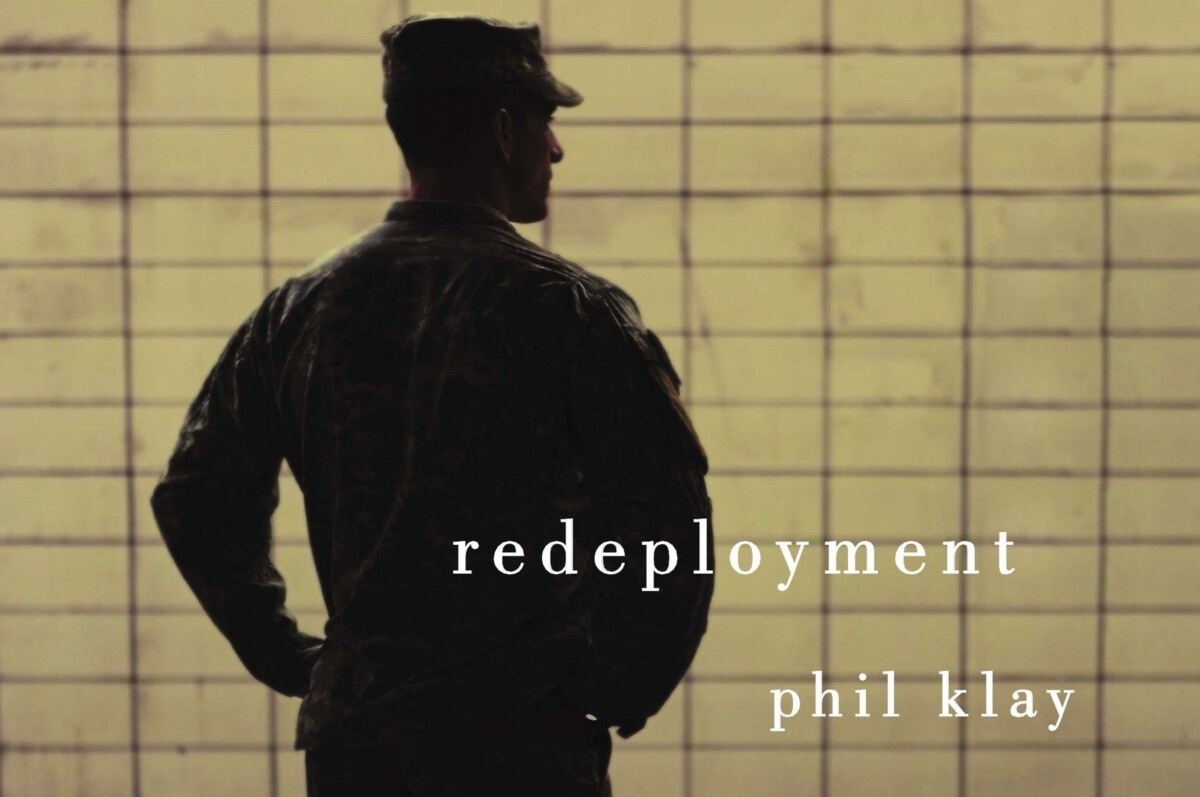
War stories normally take on the motif of initiation because no one, thank goodness, is ever prepared for watching friends–buddies–die and die fitfully; war stories are always about men and women who are changed by battle, changed forever.
Experiencing the horror of war leaves those who do with memories as sharp as cut glass, stories you either tell or you don’t. Many don’t, but not telling them often means those stories create a din within the echo chamber one’s mind and heart becomes. PTSD can result–at least that’s the common wisdom. Long ago, Lawrence Dorr, someone who’s contributed greatly to this journal over the years, told me that writing stories of his war experiences was the way to rid himself of the bad dreams that triggered.
The stories Phil Klay tells in Redeployment, a riveting collection of tales dug out of the Iraq war (does war used in that phrase get upper case yet, I wonder?) are not so much about not telling war stories. They’re not about what veterans suffer for their silence. What Klay does so poignantly is explore the heartache one feels in telling them.
All vets, I suppose, are achingly conscious of the stories they have, the stories they can tell once they discover that some people somehow want to know them, for reasons that are both noble and ignoble, for everything from soulful empathy to sick entertainment. Many want to hear, to know.
But the stories that changed the hearts and souls and minds of the vets who tell them can be manipulated or altered, reshaped for listeners simply because those stories hold such telling power. Spin them right and they can get you laid, as several of Klay’s vets come to learn. But those storytellers also learn that toying with war experiences creates its own minefield because manipulation risks discrediting both the stories and, as they come to understand, the storytellers.
What distinguishes Phil Klay’s Redeployment from Tim O’Brien’s Things They Carried has little to do with narrative power. Phil Klay had to have known and read O’Brien; his influence is everywhere. Some of Klay’s stories, given a few deft time-and-place edits, would fit snugly within the covers of Things They Carried.
But Redeployment does something else: it studies war stories and their varied effects even while it tells them, which means it tells stories about telling stories; a hail of bullets becomes a hall of mirrors and, sadly enough, yet another form of PTSD. Klay’s storytellers are haunted not only by what happened but also by how they try to explain what happened, a particular problem with veterans from Iraq and Afghanistan, since never in the history of the republic have so few done the dirty work of so many.
Redeployment creates its own echo chamber and the effect is stunning. Last month, Phil Klay walked away from the National Book Awards with the top prize, an award that is, to me, completely understandable. Like Things They Carried, Redeployment is not just a book you read, but a book you can’t help experience.
Phil Klay was there in Iraq, a Marine, and it’s evident throughout. “When I got to the window and handed in my rifle, though, it brought me up short. That was the first time I’d been separated from it in months,” he says. “I didn’t know where to rest my hands. First I put them in my pockets , then I took them out and crossed my arms, and then I just let them hang, useless, at my sides.” It may well be possible for someone who wasn’t there to imagine that unique emptiness, but such sharp perception creates authority that’s totally convincing.
Redeployment takes us, time after time, into the equation all us experience when we are suddenly forced to grow up, and it does it with war, something none of us really want to experience.
That Phil Klay walked off with the National Book Award last month is absolutely great because his Redeployment is, quite frankly, a great book. The stories his storytellers spin–and what they think about and feel while spinning them–creates a hall of mirrors that’s as fascinating as it is horrifying. We’ve been in war now for far more than a decade, but it’s fair to say that the American public really doesn’t want to know. If they did, Phil Klay would not only win prizes, he’d sell books. Don’t look for that to happen. We’d rather not know.
Redeployment isn’t a book for the beach. There are plenty of those.
Redeployment‘s power is that it is, without a doubt, deadly serious, as is war itself.

